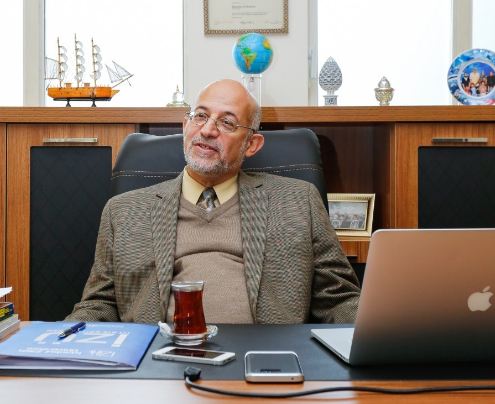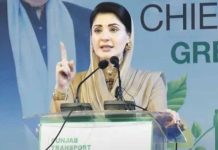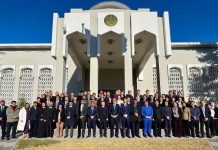Solution lies in ijtihad; understanding and carrying the message of Islam, they stress
ISLAMABAD, JUN 24 /DNA/ – The identity crisis among young Muslims has been pronounced considerably in recent times due to multiple factors, and it’s leading to confusion among them on how to navigate through the challenges of the evolution of their identity.
These thoughts were shared by Dr Sami Al-Arian, Founding Director, Center for Islam and Global Affairs (CIGA), Istanbul, during a hybrid roundtable discussion, titled ‘Muslim Youth Today: The Question of Identity,’ held at the Institute of Policy Studies (IPS), Islamabad, to develop a realistic assessment of the identity crisis and search for pragmatic solutions towards an integrated knowledge-driven future.
The session, conducted in two phases, was addressed by Dr Sami Al-Arian and Dr Junaid Ahmad, College of William and Mary, Williamsburg (US) in the first phase, discussing the subject in the broader perspective of global Muslims.
It was followed by a second round of discussion on trends and approaches among the youth to identify the key concerns and their solutions. This discussion was partaken by Dr Mohyuddin Hashmi, dean, Faculty of Arabic and Islamic Studies, AIOU, Dr Ghulam Hussain, assistant professor, Bahria University, Ammar Mehboob, head of program, Character Education Foundation, Dr Muhammad Riaz, assistant professor, AIOU, Dr Afshan Huma, assistant professor, AIOU, Dr Waqas Khan, HoD Islamic Studies, RIU, Dr Hafiz Tahir Islam Askari, assistant professor, AIOU, Ameena Sohail, advocate, Abu Saad from Youth Club, Dr Fakhr-ul-Islam, director Research and Academic Outreach, IPS, and Khalid Rahman, chairman IPS.
Dr Sami suggested that a man lives by his primary identity, which is an informed choice out of the free will and to which all other types of identities are subject for guidance.
For Muslims, the ultimate source of guidance is the Qur’an, which becomes their primary identity. However, during these times of identity crisis, the need is to define whether Muslims can really understand the Qur’an and truly carry its message. This is necessary so that Muslim youth can construct a sense of how to see themselves with multiple identities. He further talked extensively about the tawhidi paradigm, its realms, primary identity model, and principles.
Adding to this, Dr Junaid said that geographical and racial identities have now largely become secondary identities, having been surpassed by the primary one of being a Muslim. While Islamophobia has structured the world order, sufficient attention has not been given to making young Muslims aware of local and global issues. Consequently, the youth are caught off-guard and hesitant about how to respond to those issues. What the Muslim youth need is to understand the issues to improve the situation.
Following this, speakers asserted that ijtihad and creative research are needed to solve issues of identities.
Dr Mohyuddin said that our societies are facing a dichotomy where social ethos are constructed by Islam but formal knowledge is shaped by historical experiences of the west and its contemporary approaches. This dichotomy causes the question of identity. The identity crisis among young Muslims globally has also been formed by Islamophobia and globalization. To deal with such concerns in changing times, ijtihad continues but cannot catch up with the changing theories and narratives that pour in through media. It is critical to take a serious look at ijtihad and modernize it to deal with international issues. The Muslim perspective should also reflect in international conventions, treaties, and declarations.
The speakers further stressed the need to review the education system and curriculum with a focus on character-building and reinforcement of the indigenous character among youth. The culture of critical thinking and asking questions should be promoted for a knowledge-based society.
Concluding the session, Khalid Rahman highlighted the need to transform the education system and divert its focus from creating an aimless life centered on career and monetary gains. Moreover, no single person can resolve the issue; it should be a collective effort to bring change and address the problem, he maintained.











